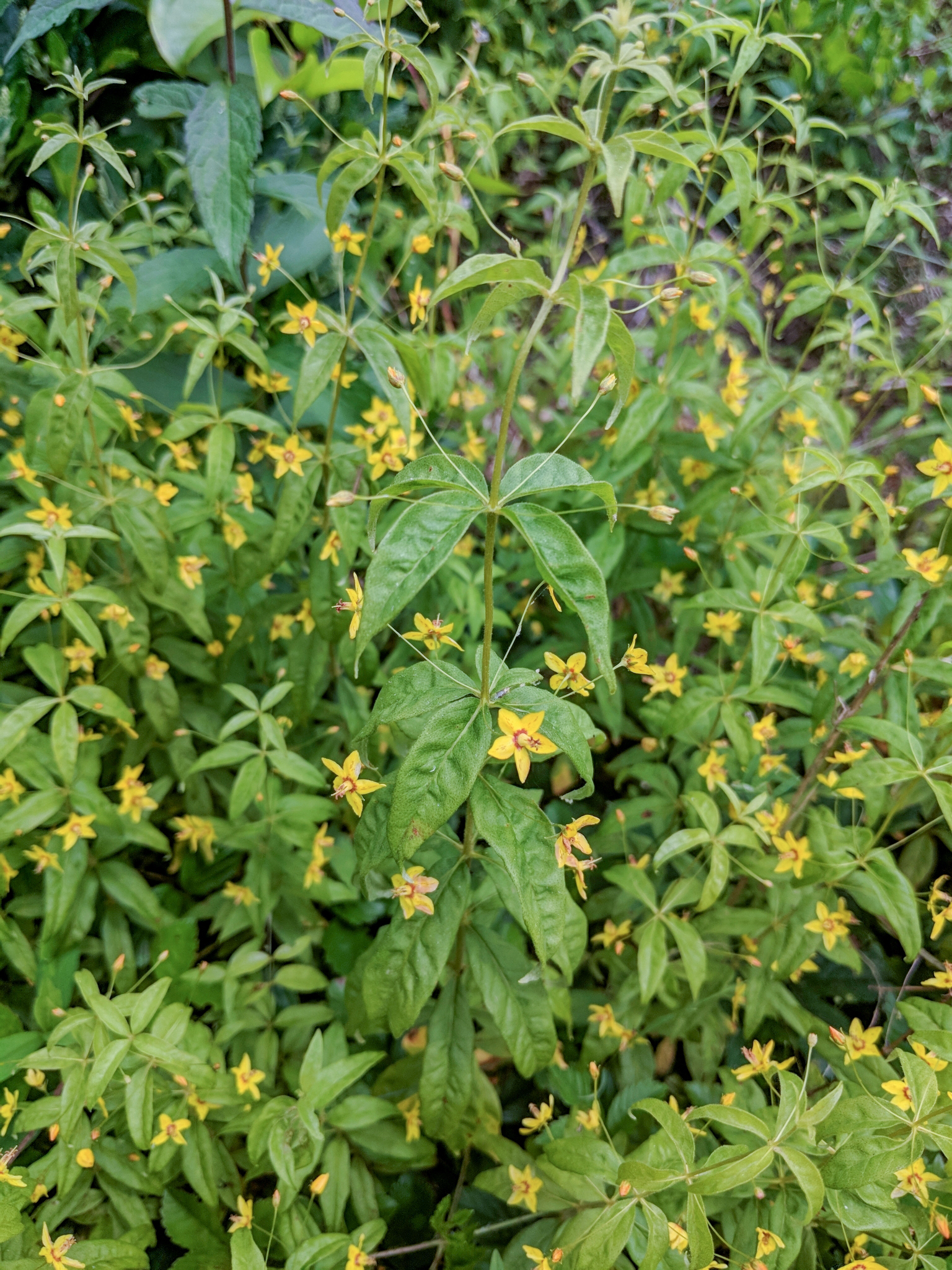Loosestrife and Dogbane
Loosestrife Bees (genus Macropis) are among the rarest bees in the Northeast. They are unique in collecting oils from our native Loosestrifes (Genus Lysimachia) and are thus dependent on these yellow flowers. There is some evidence that these bees were once more common and widespread than they are today. Not all the Loosestrife species in Vermont are used by these bees. Most of the recent records have been associated with Fringed Loosestrife (L. ciliata), though Whorled Loosestrife (L. quadrifolia) and Swamp Candles (L. terrestris) are also used. Both males and females will occasionally visit other flowers in these areas, presumably for nectar. In particular, they are often found on dogbanes (genus Apocynum), which appears to be an important part of Macropis habitat.
Loosestrife bees are the only host for Macropis Cuckoo Bee (Epeoloides pilosulus), an RSGCN high concern species, which likely has and may still be found in Vermont. Another RSGCN species, the Patellate Yellow Loosestrife Bee (Macropis patellata), has been found recently at one protected area in Vermont, but very few other sites globally. Intentional management is likely necessary to maintain a healthy population of Loosestrife at the Vermont site.
